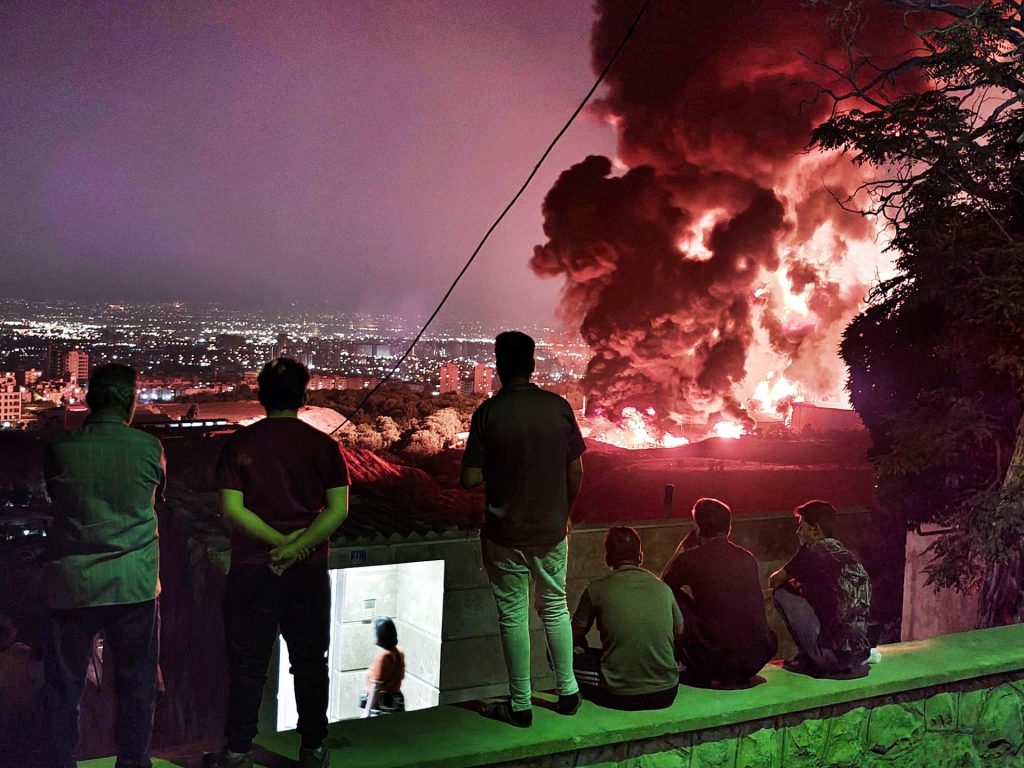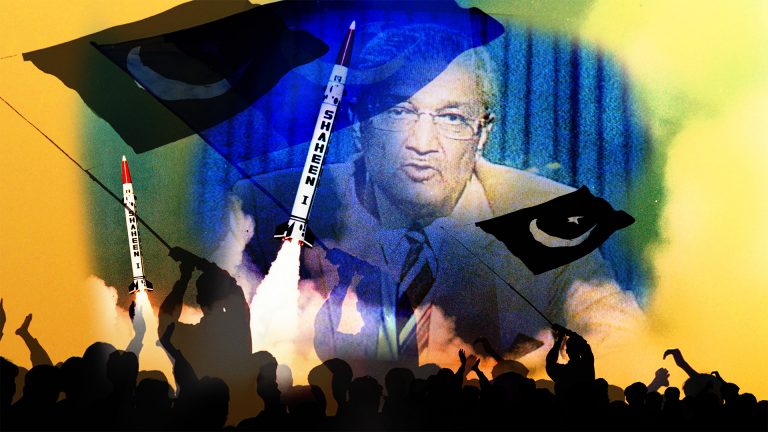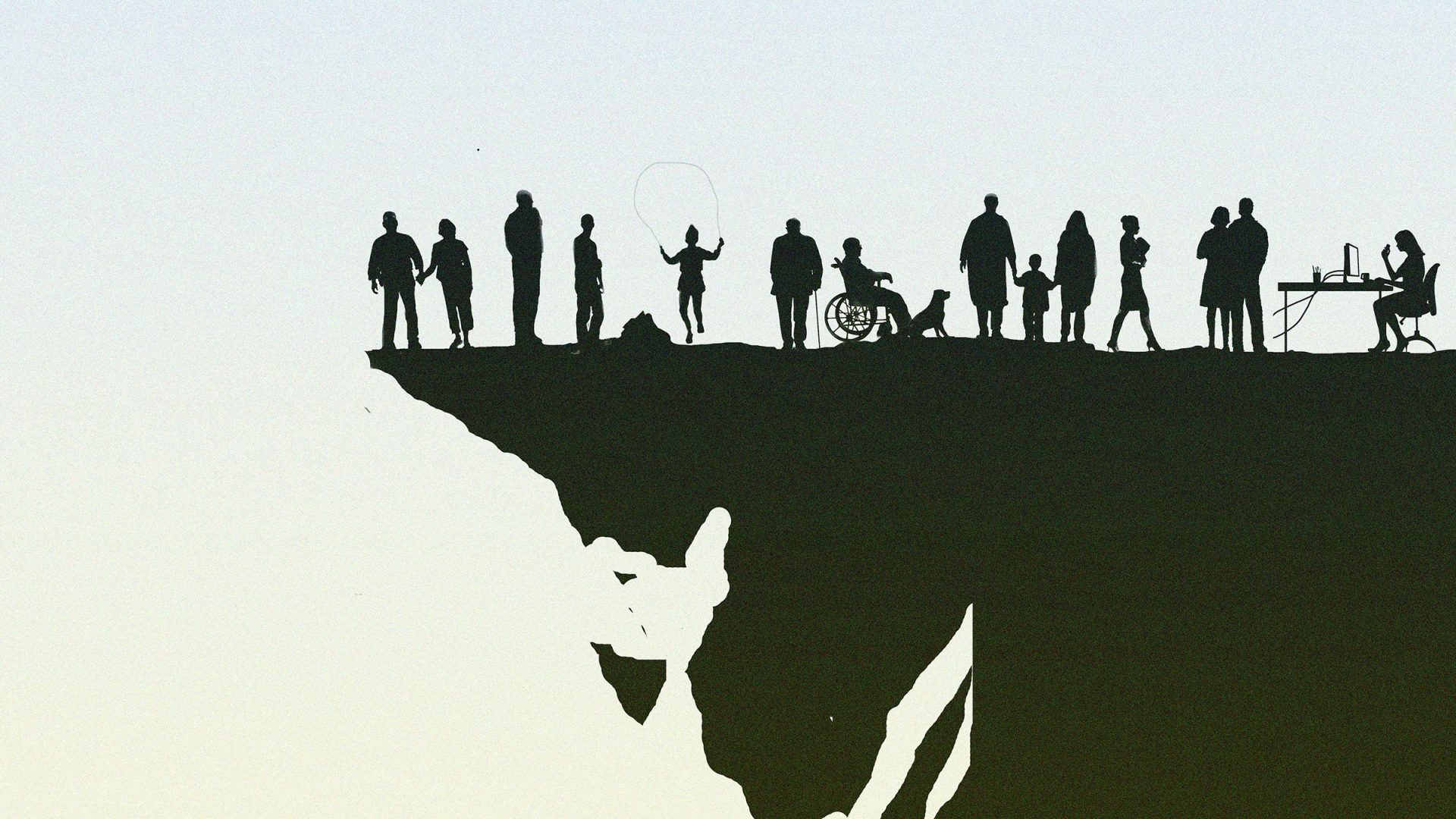Benjamin Netanyahu’s call to Iranians that they should stand up “for freedom from the evil and repressive regime” was not the first time he has urged a revolution against the ayatollahs. At a moment of great global peril, it seems almost frivolous to recall his 2018 video congratulating the Iranian World Cup team’s goalkeeper. Netanyahu praised the player for saving a Cristiano Ronaldo penalty by comparing his “courage” to that of his fellow Iranians who had just braved killings and arrests by the security forces in protests across several cities.
Just as he was back then, Netanyahu, who is now in his sixth term in office, is trying to convince people in Iran and around the world that despite mounting civilian casualties on both sides, his quarrel is not with the Iranian population but with their rulers. He now clearly believes that, accompanied as it has been by a devastating and unprecedented series of air strikes against Iranian military commanders, scientists and nuclear infrastructure, his fresh call for a revolt will now be willingly received.
But why now? One consequence of this escalation of conflict with Iran is that it has taken attention almost entirely away from the situation in Gaza, which Israel’s assault has reduced to a famine-ridden wasteland. It is in Netanyahu’s interest to move international focus away from that tragic situation. In an attention-grabbing statement, the Israeli leader has said that Iran now has enough uranium to build “nine nuclear bombs”, and that at least one device could be produced “within months or a year at least”. Israel, he said, could not accept this threat of a nuclear “Holocaust”.

It is hard to know what to make of that claim. On the one hand, the International Atomic Energy Agency report last week said it had been repeatedly denied access to parts of Iran’s nuclear programme, which gives grounds for suspicion. But on the other hand, it did not say that Iran was on the brink of producing a nuclear weapon.
Moreover, in late March Tulsi Gabbard, the US director of national intelligence, while acknowledging that Iran’s enriched uranium stockpile was at unprecedented levels, told a senate committee that current US assessments were that Iran was not actively pursuing a nuclear weapon.
But Israel’s current “pre-emptive” war on Iran is not simply an expression of Netanyahu’s irrational hatred and distrust of Iran and its leadership. There is a long and substantial history of Iranian animosity and threats towards Israel. It was back in 2002 that a collection of Arab states – including Saudi Arabia – promised to recognise Israel if it agreed to a two-state solution with the Palestinians. And yet Iran had no interest in any rapprochement, and made no offer of any recognition.
Things became even worse in 2005, when Iran’s hardline president Mahmoud Ahmadinejad made a comment that was widely translated as saying that Israel should be “wiped off the map”, confirmation of everything Israel’s Iran hawks had been warning about. Perhaps sensing the emboldening effect these remarks would have on Iran’s most dedicated adversaries, Iran’s supreme leader, Ayatollah Ali Khamenei, moved swiftly to “clarify” the comment. But although Khamenei insisted that “the Islamic Republic has never threatened and will never threaten any country”, he himself has described Israel as a “cancerous tumour” and in 2012 predicted that “the superfluous and fake Zionist [regime] will disappear from the landscape”.
Suggested Reading

The father of Iran’s nuclear programme
As the Iranian rhetoric built, so did the degree of military threat. The Houthis in Yemen and Hezbollah in Lebanon are Iranian military proxies, and Israel has fought several conflicts against Hezbollah, most significantly the 2006 Lebanon war. Both the Houthis and Hezbollah launched attacks on Israel in response to its post-October 7 onslaught on Gaza. Israel’s fierce and largely successful subsequent counteroffensive against Hezbollah weakened Iran and also contributed to the fall of the Assad regime in Syria, another Iranian ally, which collapsed in December.
Which raises the question of whether Hamas’s brutal October 7 attack on Israel was inspired by Iran. Hamas is Sunni, unlike Iran, which is Shia – and as a Palestinian nationalist group, Hamas is not an Iranian proxy in the same way as Hezbollah. It has received funding and arms from Iran, and earlier in 2023, Hamas’s leadership in Gaza sought support from both Hezbollah and Iran for military operations against Israel. What’s much less certain is whether Iran knew what was coming and when. The view of most western intelligence agencies at the time was that they did not.
It could have been different. Iran was the second Muslim country, after Turkey, to recognise Israel, back in 1950. Mohammed Mossadegh broke off diplomatic ties with Israel a year later, but his government was overthrown in the 1953 British-US sponsored coup, after which Israeli-Iranian relations resumed.
Things did not always run smoothly under Shah Mohammad Reza Pahlavi, particularly in 1974, when he decided to engage with the Palestinian Liberation Organisation. As the Iranian scholar and former diplomat Shireen Hunter has written, the Shah was concerned that the unresolved plight of the Palestinians was having a radicalising effect on the entire Middle East. It was also the Shah who began to promote the idea of Iran acquiring a nuclear capability.
Even after the 1979 Islamic revolution, which brought in the current theocratic Islamic regime, relations with Israel were not always as hostile as now. During the 1980-88 Iran-Iraq war, when the western powers largely backed Iraq, Israel saw Iraq as the greater threat and provided Iran both with arms and intelligence co-operation. In return, Israel was able to benefit from Iranian intelligence when it launched its successful attack on Saddam Hussein’s unfinished nuclear reactor at Osirak in 1981.
But Israel’s view of Iran became increasingly fixated on Tehran’s nuclear programme and the threat that it posed. At the same time, despite the cooperation during the Iran-Iraq war, Iran’s acceptance of aid from Israel had been exclusively covert. The dominating attitude in Tehran towards Israel was a deep religious and ideological hostility driven on by the plight of the Palestinians.
Netanyahu has now been making the argument about Iran’s nuclear programme for decades. Military action, not negotiations, were the only way to ensure Iran didn’t develop the bomb, he argued. Despite Israel’s slide towards outright hawkishness, Barack Obama still reached an agreement with Iran to limit its nuclear programme. In 2016, Donald Trump withdrew US support for that deal, effectively causing it to collapse.
But throughout the deepening sense of animosity, most Iranian people do not appear to share the leadership’s obsession with Israel. Indeed, the Tehran leadership – including 86-year old Khamenei – are increasingly unpopular, as the population has to endure draconian repression and the economic hardship caused by sanctions. That discontent is manifested in the growing number of protests, most recently those for “Women, Life, Freedom”, that sprang up after the death of Mahsa Amini, 22, in police custody. The young woman had been accused of violating headscarf rules.
Writing on Sunday in the liberal Israeli newspaper Haaretz – which has opposed Netanyahu’s war on Iran – the Iranian historian Ashraf Azizi pointed out that, while there have been anti-Israel demonstrations across the world, there has been no such event in Iran “no matter how hard the regime tried to organise it”. Meanwhile Iran’s Left Party, while condemning the Israeli attacks, has also strongly criticised the Islamic Republic’s leaders “for threatening the region with war”.
Azizi also pointed out, however, that most of the Iranians he spoke to were now preoccupied with survival rather than revolution, adding that “notions of a popular uprising instigated by Israeli attacks seem fanciful”.
Netanyahu sees that Iran is in a weakened international position and at least up until the attack on Iran its leadership was disliked at home – on the basis of this, he is currently making two big assumptions. One is that Israel can militarily halt Iran’s nuclear programme without direct US assistance, and do so in a way that will not cause Iran to accelerate its bomb programme.
His other assumption is that the war will bring regime change in Tehran. Even if these two highly doubtful assumptions are correct, it may take many weeks or even months of lethal and globally destabilising combat to bring either of them about. At the same time, the horrifying bloodshed in Gaza drags on.
But if Netanyahu does press ahead with an attempt at regime change in Tehran, the consequences of pursuing that course, and the escalation that it would represent, could easily get out of hand. The results could be catastrophic.



